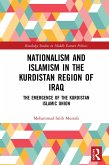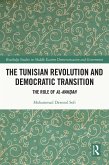Far from a monolithic force, Islamist actors across Egypt, Tunisia, Yemen, Morocco, Libya, Jordan, Syria, Sudan, and the Gulf reacted in divergent and contradictory ways to the revolutionary wave. This volume brings together scholars from within the region who not only document the evolving role of Islamist parties in their respective contexts but also critically examine how their ideologies, internal structures, and political strategies were challenged, revised, or, in some cases, further radicalized. Drawing on case studies of both participation and repression, electoral victories and authoritarian backlash, the chapters offer a panoramic view of Islamists navigating revolution, governance, exile, and counter-revolution. From the Muslim Brotherhood's dramatic rise and fall in Egypt to Ennahda's contested governance in Tunisia, and the fragmented Islamist scene in post-Qaddafi Libya, this book reveals how the Arab uprisings served as a turning point - exposing both the potential and the limits of political Islam.
Essential reading for scholars and students of Middle East politics, Islamist movements, revolutionary studies, and democratization, this book provides crucial insights into the turbulent interplay between ideology, power, and social transformation in the contemporary Arab world.
Dieser Download kann aus rechtlichen Gründen nur mit Rechnungsadresse in A, B, BG, CY, CZ, D, DK, EW, E, FIN, F, GR, HR, H, IRL, I, LT, L, LR, M, NL, PL, P, R, S, SLO, SK ausgeliefert werden.









